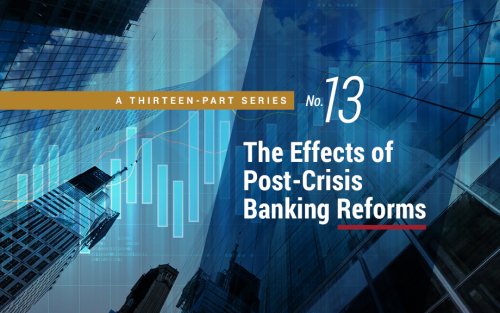How Has Post‑Crisis Banking Regulation Affected Hedge Funds and Prime Brokers?

“Arbitrageurs” such as hedge funds play a key role in the efficiency of financial markets. They compare closely related assets, then buy the relatively cheap one and sell the relatively expensive one, thereby driving the prices of the assets closer together. For executing trades and other services, hedge funds rely on prime brokers and broker-dealers. In a previous Liberty Street Economics blog post, we argued that post-crisis changes to regulation and market structure have increased the costs of arbitrage activity, potentially contributing to the persistent deviations in the prices of closely related assets since the 2007–09 financial crisis. In this post, we document how post-crisis changes to bank regulations have affected the relationship between hedge funds and broker-dealers.
Bank‑Intermediated Arbitrage

Since the 2007-09 financial crisis, the prices of closely related assets have shown persistent deviations—so-called basis spreads. Because such disparities create apparent profit opportunities, the question arises of why they are not arbitraged away. In a recent Staff Report, we argue that post-crisis changes to regulation and market structure have increased the costs to banks of participating in spread-narrowing trades, creating limits to a¬rbitrage. In addition, although one might expect hedge funds to act as arbitrageurs, we find evidence that post-crisis regulation affects not only the targeted banks but also spills over to less regulated firms that rely on bank intermediation for their arbitrage strategies.











 RSS Feed
RSS Feed Follow Liberty Street Economics
Follow Liberty Street Economics